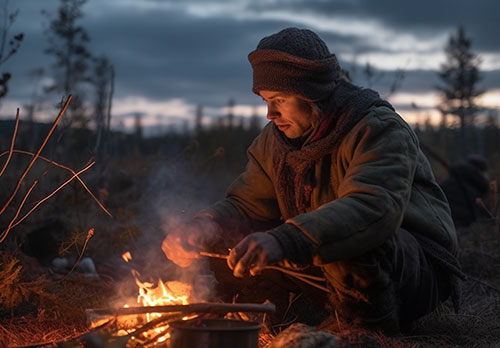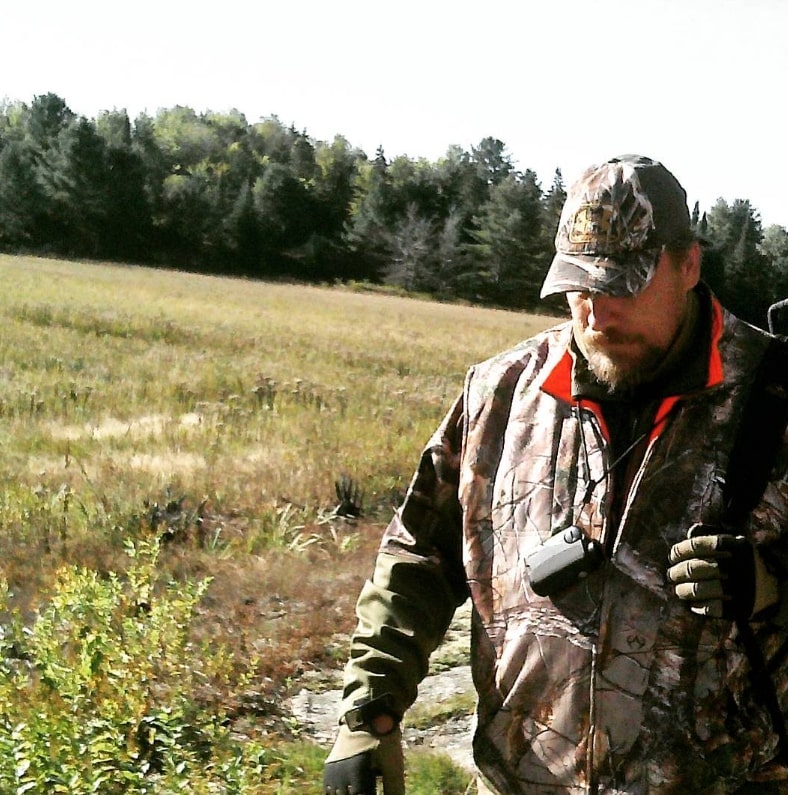Embrace the Essence of Wild Game: A Culinary Adventure


Cooking wild game isn’t just about preparing a meal; it’s embarking on a culinary adventure that introduces you to the rich and unique flavors associated with each type of meat. In this journey, we’ll explore the art of embracing the essence of wild flavors, from avoiding overpowering seasonings to mastering the tenderizing process. Let’s dive into the world of wild game cooking and discover how to create mouthwatering dishes that celebrate the purity of the meat.
1: Savor the Untamed Flavors
To truly appreciate the essence of wild game, resist the temptation to drown it in excessive seasonings. Opt for simple marinades that complement the natural taste, enhancing the eating experience and highlighting the unique qualities of the game you’ve harvested with dedication.
2: Master the Art of Tenderizing
Contrary to common belief, wild game isn’t always tough. With the right techniques, even the leanest cuts can be transformed into succulent delights. Explore marinades with acidic elements like vinegar or citrus, and employ a meat mallet for effective tenderizing. Your wild game will thank you with juiciness and flavor.
3: Tailor Cooking Methods to the Game
Different types of wild game call for specific cooking methods. Slow-cook tougher cuts through braising or stewing, infusing them with tenderness. Delicate game, like certain fish or fowl, shines with quick, high-heat methods such as grilling or pan-searing. Tailoring your approach ensures optimal taste and texture.
4: Preserve the Integrity of the Meat
Wild game boasts a purity that deserves celebration. Preserve this integrity from the outset by avoiding overcooking, which can lead to dryness and flavor loss. Invest in a quality meat thermometer for precise cooking times, guaranteeing your wild game is perfectly cooked while retaining its natural juiciness.
5: Creativity in Pairing Flavors
Elevate your wild game dishes by experimenting with flavor pairings that enhance, rather than overshadow, the meat’s essence. Local herbs, fruits, or wine can add depth and complexity, adding a personal touch to your creations and showcasing the vibrant flavors achievable with wild game.
6: The Art of Seasoning
While simplicity is key in savoring wild game, mastering the art of seasoning can elevate your dishes. Opt for high-quality sea salt, freshly ground pepper, and herbs to enhance the natural flavors without overwhelming them. Experiment with different blends to find what complements each type of game best.
7: Mindful Foraging for Ingredients
As an outdoorsman, the connection between nature and your plate is profound. Take your culinary adventure a step further by foraging for local ingredients. Incorporating wild herbs, mushrooms, or berries not only adds a personal touch but also connects you to the environment in a unique and sustainable way.
8: Embracing the Game’s Diversity
Wild game isn’t a one-size-fits-all culinary experience. Each type of meat carries its own distinct qualities and characteristics. Embrace this diversity by exploring recipes tailored to specific game, allowing you to showcase the uniqueness of each hunting or foraging experience.
9: Sustainable Practices in Cooking
As a hunter and advocate for the outdoors, consider sustainable practices in your cooking. Opt for locally sourced, ethically harvested ingredients to support conservation efforts. Being mindful of your ecological impact adds an extra layer of satisfaction to your culinary endeavors.
10: Sharing the Experience Through Blogging
Your passion for the outdoors and wild game cooking is a story waiting to be shared. Consider documenting your culinary adventures through blog posts. Share recipes, tips, and the benefits of hunting, foraging, and gardening your own food. Your unique perspective can inspire others to embark on their own journey.
11: Navigating Challenges in Wild Game Cooking
While cooking wild game is rewarding, it comes with its challenges. Address common issues like gaminess or uneven cooking by exploring techniques such as brining or marinating. Navigating these challenges ensures a consistently delightful dining experience.
12: The Joy of Outdoor Cooking
Take your wild game cooking outdoors for a truly immersive experience. Whether it’s grilling, smoking, or campfire cooking, the outdoor setting adds an extra layer of authenticity to your dishes. Embrace the natural surroundings as an extension of your kitchen.
13: Community and Culinary Events
Engage with the community by participating in culinary events or organizing your own. Share your knowledge and love for wild game cooking, fostering a sense of camaraderie among like-minded individuals. The exchange of ideas and experiences can further enrich your culinary journey.
14: Wild Game and Health Benefits
Highlight the nutritional benefits of wild game in your cooking. From lean protein to essential nutrients, wild game offers a healthier alternative to commercially raised meat. Educate your audience on the positive impact of incorporating wild game into their diets.
15: Beyond the Plate – Gardening Your Own Ingredients
Extend your culinary adventure to the garden by cultivating your own ingredients. Whether it’s herbs, vegetables, or fruits, gardening adds a new dimension to your cooking. Emphasize the holistic approach of hunting, foraging, and gardening to create truly sustainable and fulfilling meals.
In continuing your wild game cooking journey, remember that each dish is an opportunity to celebrate nature’s bounty. Whether you’re experimenting with new seasonings, embracing diverse game types, or sharing your experiences through blogging, your passion for the outdoors shines through. Happy cooking and may your culinary adventures continue to inspire others to connect with the essence of wild flavors.
In conclusion, cooking wild game is an art requiring a delicate balance—preserving natural flavors, mastering tenderizing techniques, choosing appropriate cooking methods, and infusing creativity into flavor pairings. By following these tips, you’ll not only master the art of cooking wild game but also inspire others to appreciate the benefits of hunting and consuming what nature provides. Happy cooking!
FAQs:
Q1: What’s the key to appreciating the essence of wild game?
A: The key is to resist overpowering it with excessive seasonings, opting for simple marinades that complement the natural taste.
Q2: Can all cuts of wild game be tenderized?
A: Absolutely! With the right techniques, even the leanest cuts can be transformed into succulent delights. Marinades with acidic elements and a meat mallet work wonders.
Q3: Why is tailoring cooking methods important for wild game?
A: Different game types benefit from specific cooking methods. Tailoring your approach ensures optimal taste and texture, whether slow-cooking tougher cuts or quick-searing delicate game.
Q4: How can I preserve the purity of wild game during cooking?
A: Avoid overcooking, invest in a good meat thermometer for precise cooking times, and celebrate the purity of wild game by retaining its natural juiciness.
Q5: Why is creativity in flavor pairings essential for wild game dishes?
A: Creativity enhances the culinary experience, adding depth and complexity to dishes. Experiment with local herbs, fruits, or wine to showcase the diverse flavors achievable with wild game.
Subscribe Now for a World of Flavor

Ready to take your cooking skills to the next level? Subscribe to Our Cooking YouTube Channel today and unlock a world of flavor, inspiration, and culinary adventure. Whether you’re looking to expand your recipe repertoire, refine your cooking techniques, or simply satisfy your food cravings, we’ve got everything you need to make every meal a masterpiece. Don’t miss out – subscribe now and let the culinary journey begin!




